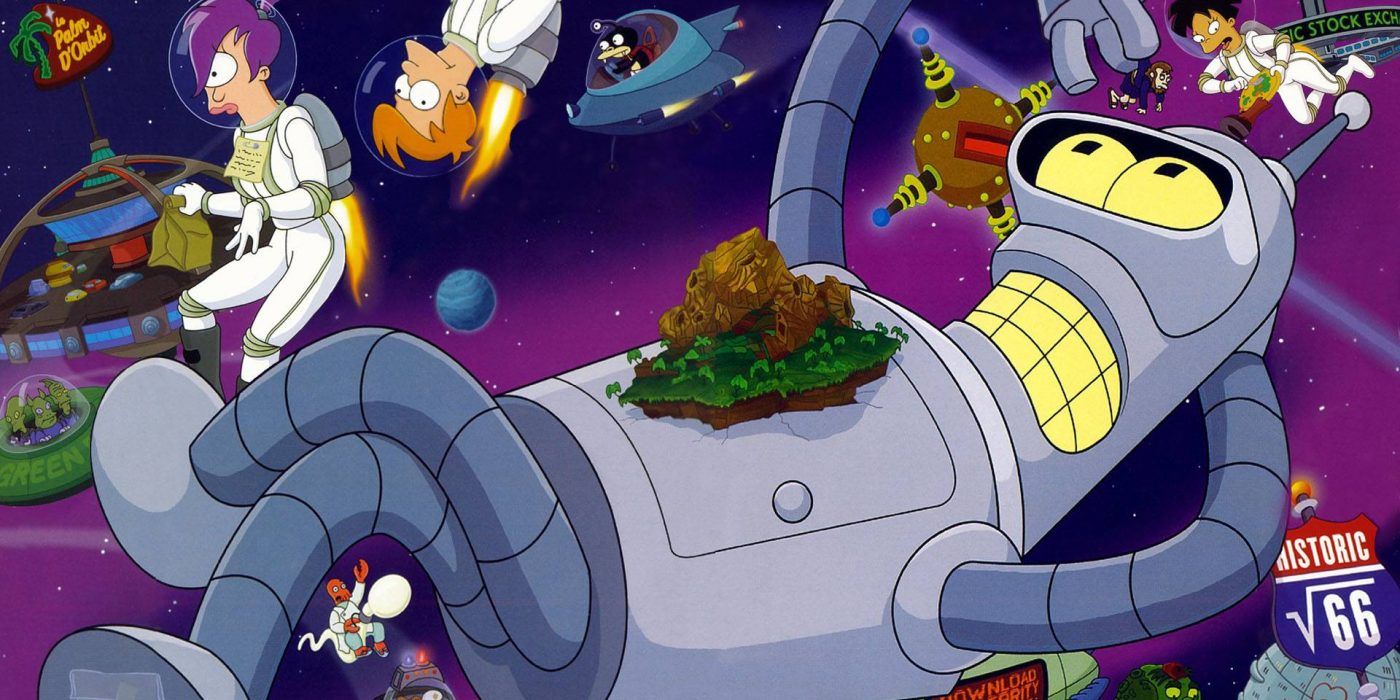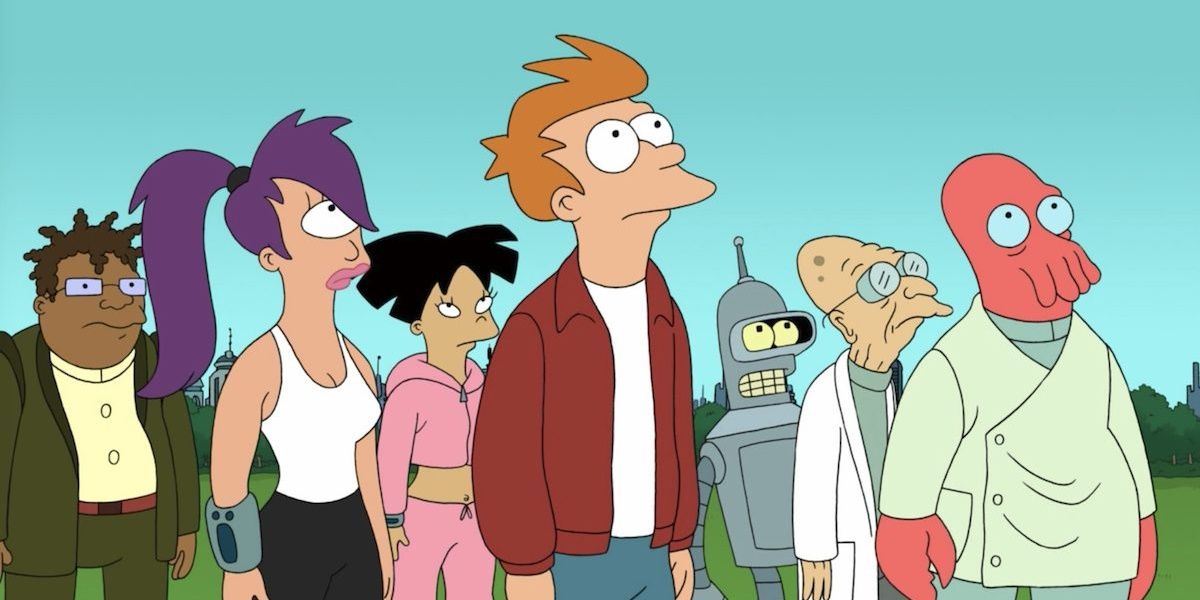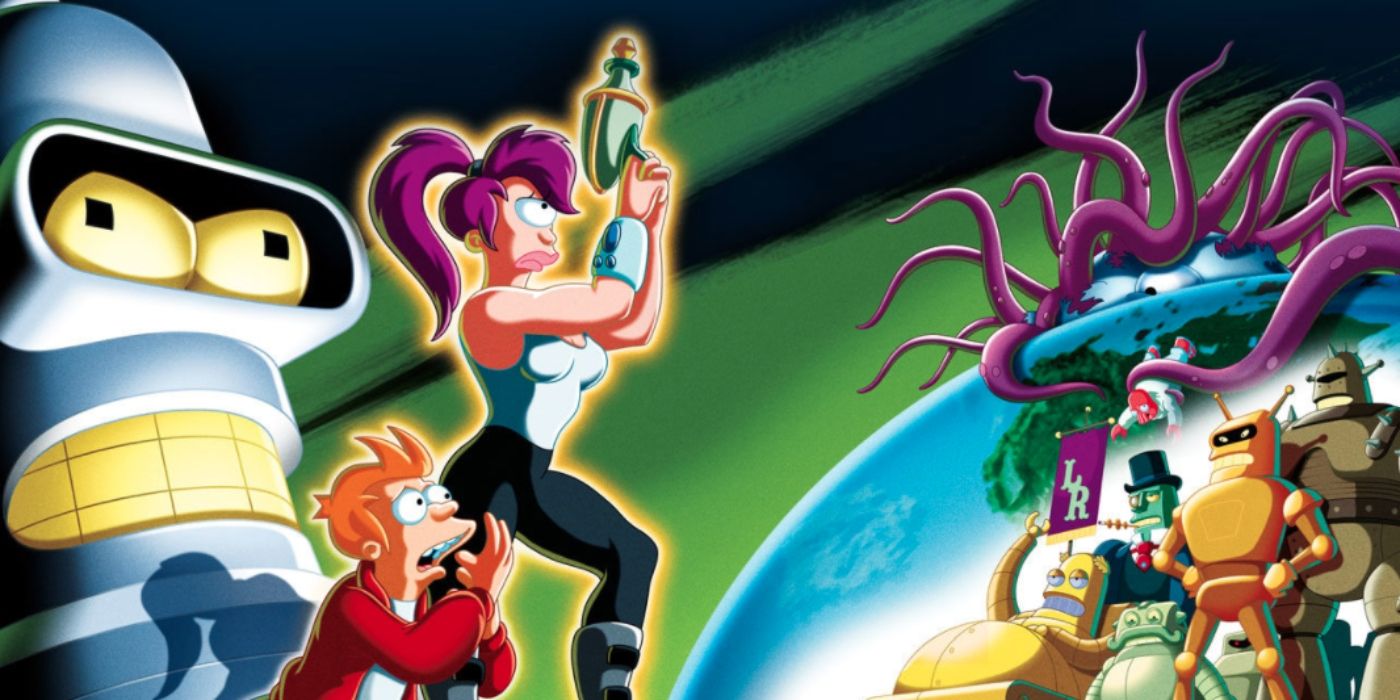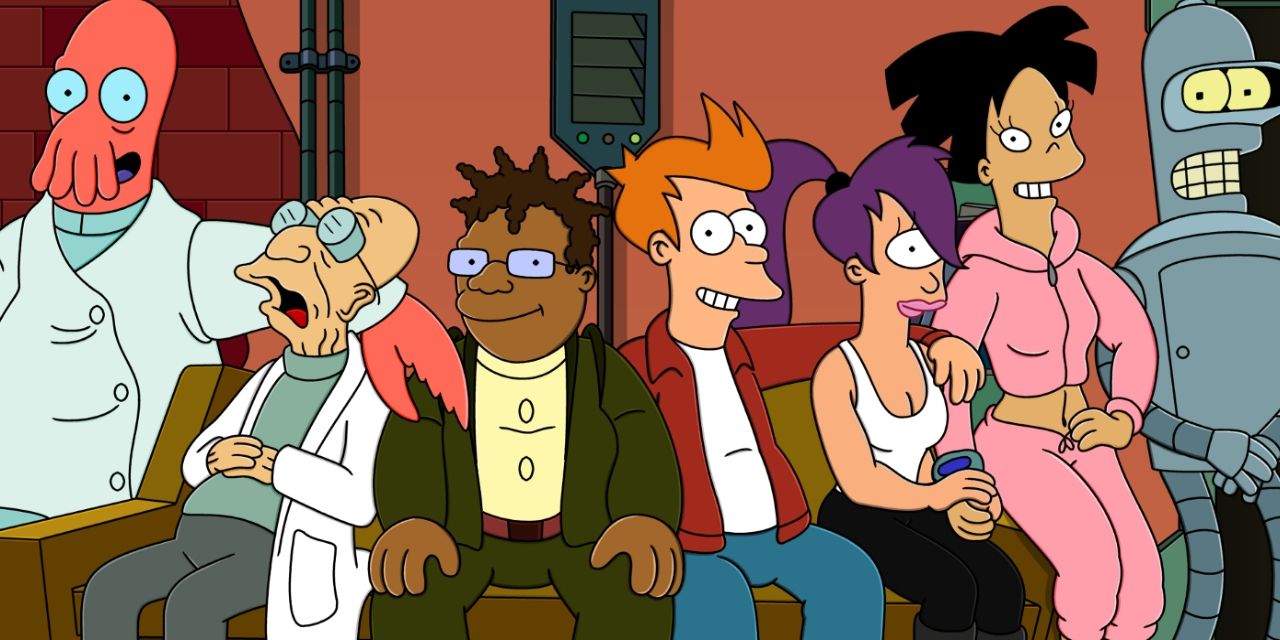Thanks to its wild and weird interpretation of the distant future, Futurama was able to incorporate plenty of bizarre plotlines and explore lots of strange settings. But despite the expansive cast and massive universe, there was quietly a very powerful throughline at the center of the series.
Behind all the sci-fi comedy, Futurama was truly about the importance of free will, and how people had to embrace their own choices to truly grow and be happy in their lives.
Premiering in 1999, Futurama centers around the crew of the Planet Express, a delivery company that travels to the various corners of the galaxy in the distant future of the 31st century. The show mixes a bleak but silly sense of comedy, a great deal of emotional resonance, and some genuinely unique takes on classic sci-fi concepts. Furthermore, Futurama's characters -- Fry, Bender, Leela, Professor Farnsworth, Doctor Zoidberg, Amy, Hermes, and Scruffy -- all got unique perspectives on the universe around them, with completely different origins and backstories to allow for a greater wealth of storytelling possibilities.
But the throughline that connected all these disparate characters and their emotional arcs was how vital choice really is. The importance of free will was a chief recurring concept of the show. Fry was revealed to be a destined figure and consistently chose to sacrifice his personal happiness to help the people he cared about. Fry and Leela could never have romance forced upon them for it to work, but both of them chose to be with the other. Leela chose to accept her family, resulting in the reserved woman becoming increasingly open as the show progressed. Amy chose to be with Kif, Zoidberg chose to stay by the Professor, and Hermes chooses to be the bureaucrat he wants to be -- with Hermes having perhaps the most stable and fulfilled life out of the entire crew.
Bender became the show's primary means of exploring questions about free will, with the rebellious robot actively questioning fate, choice, and the ramifications of everything in between. As a result of a short circuit in Season 1's "Space Pilot 3000," Bender was given the ability to think and act outside of his programming -- giving him a defined sense of liberty in his actions. Season 4's "Godfellas" saw Bender try to serve as a God-like figure to a small race that ultimately chose to go to war and destroy themselves -- in part to Bender choosing not to interfere further in their lives. Bender ended the episode by speaking with a God-like entity about the importance of people having the ability to choose what happens, resulting in Bender choosing to save a band of monks when he finally returns to Earth.
Season 6's "Overclockwise" opened with Cubert modifying Bender so he could move at increased processing speeds -- with Bender eventually progressing to the point where he could accurately predict the future. Bender made a habit of manipulating events to his benefit. But he also eventually chose to save Planet Express from collapse, even if it meant allowing himself to be captured and reduced to his earlier state. Season 7's "Free Will Hunting" delved fully into this idea, with a despondent Bender traveling the galaxy and wondering what was the point of taking any action if it meant he did so involuntarily. If he didn't choose to do something but was fated/programmed to do so, then what makes it matter?
RELATED: Futurama: The Show Was Almost Completely Different In Some Huge Ways
"Free Will Hunting" ends with Bender finally gaining the free-will device from Farnsworth and immediately shooting him with a laser, leading him to be arrested for willfully committing attempted murder. This leaves Bender and the entire Planet Express crew celebrating, as Bender's ability to choose has finally been confirmed.
Season 4's "The Farnsworth ParaBox" introduced a reality full of minor differences, such as Leela giving a romance with Fry an earlier try and discovering how good of a man he could really be. But the lesson of the episode was to reflect on the weight we give our own decisions, with Leela deciding at the end of the episode to simply give Fry another shot instead of leaving it to the fate of a coin flip. It all gives the often silly series a meaningful and mature message: the only true path to happiness is through your own choices and what you do with them.




